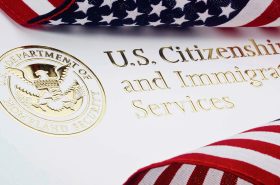The term “parole” within the context of U.S. law has different meanings. In criminal justice, for example, the term refers to “conditional release.” In the immigration context, “parole” has a completely different interpretation. It is not an immigration status, nor a guarantee of status, nor even an immigration benefit. “Parole,” as described in section 212(d)(5) of immigration laws, is nothing more than a temporary authorization granted by the government to an applicant who wishes to enter or stay temporarily in the United States, even if they do not qualify for a visa, due to an urgent humanitarian need, or because their presence in the United States will benefit the country. Examples of situations where the government grants entry through “parole” in the United States include people needing urgent surgery or medical treatment, individuals coming to testify in criminal proceedings, etc.
There is also “parole in place,” granted to people already in the United States. Currently, this type of case is almost entirely limited to family members of military personnel who entered the border without a visa but who, being immediate relatives of U.S. citizens, can obtain residence through adjustment of status. Until recently, “parole in place” was also offered to Cubans who entered the United States by sea and needed “parole” to adjust their status. However, the end of the wet-foot-dry-foot policy eliminated this possibility.
Lastly, there is “advance parole,” an immigration pre-authorization for certain individuals, such as those with pending adjustment of status petitions, allowing them to travel outside the United States during the pendency of their processes without it being considered abandonment of the case. In other words, it is a request for reentry into the country while the adjustment of status has not been approved. “Advance parole” in adjustment of status processes is routine, and receiving its approval is not a sign that the case will be approved or has merit. It is also not a guarantee of reentry into the country. Certain people, such as those with a criminal history, may be barred from reentry into the country even with “advance parole.” Therefore, it is important to emphasize that “parole” is not a guarantee of entry or residence in the United States, or even success in the immigration case. It is merely a legal mechanism that authorizes immigration authorities to allow the entry of people who normally could not enter.



